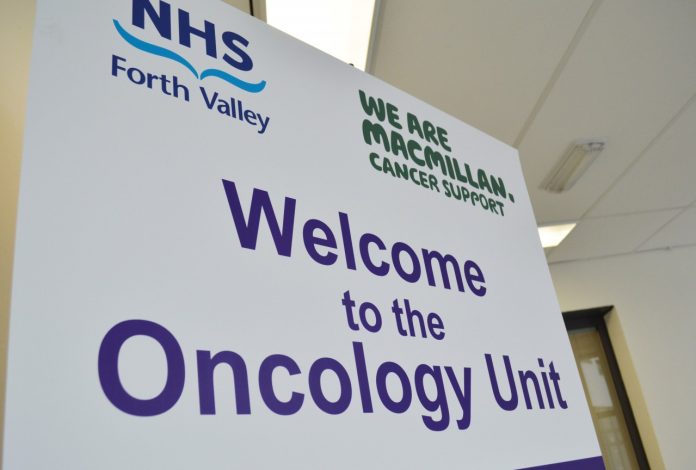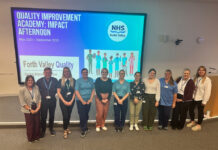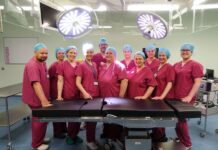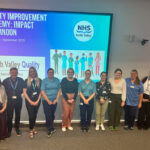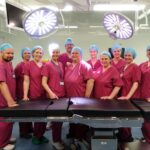Nearly 2,000 new cases of cancer are diagnosed every year in Forth Valley, and 15,000 people in this area are living with cancer. The Oncology Unit at Forth Valley Royal Hospital is a specialised service providing high quality, holistic care. Staff News has been taking a look at what patients can expect when they attend an appointment.

The Administration Team plays a frontline role in providing face-to-face contact with patients. Reception staff are the first to meet and greet people at what can be a very distressing time, and use their skills to put patients at ease and manage any concerns around appointments. They are adept at spotting people who may need more support than they can offer, referring them to the nursing team who may be better placed to help. Secretaries sit within the unit, a huge advantage not only in terms of team support, but also in dealing with the many enquiries from local GPs.
Chemotherapy is delivered daily Monday to Friday for five of the most common cancer groups – haematology, breast, urology, lung and colorectal. Some of the

Chemotherapy Team are non-medical prescribers and are also trained to insert PICC lines for patients with poor venous access. All nurses in the Oncology Unit are equipped with advanced communication skills and, with increased demand for chemotherapy coupled with the latest treatments, there is an emphasis on keeping practice safe combined with a good care experience. This requires continual evaluation and change. The delivery of chemotherapy is supported by oncology pharmacists and medical
cover is provided by a group of visiting consultants from the Beatson Oncology Centre in Glasgow, apart from haematology which is delivered by Forth Valley consultants.
Uniquely within Scotland, our team of Clinical Nurse Specialists are based within the Unit, working in partnership and alongside the Chemotherapy Team. The Clinical Nurse Specialists support patients with haematology, breast, urology, lung, colorectal, head and neck and upper GI cancers. They also manage patients with stomas and lymphoedema. There are plans to introduce a clinical nurse specialist for skin in the near future.

The Palliative Care Team supports ward staff looking after patients with advanced disease. This can involve managing complex issues around symptom management and end of life care. All nurse specialists provide support to patients and families at various points throughout their cancer journey and work closely with staff at Strathcarron Hospice.
For many years the Oncology Unit has had the privilege of having a group of Volunteers who help in the waiting area. Waiting for news or results of treatment can be a very anxious time, but volunteers make a huge difference to patients offering a welcome cup of tea, simply listening, or just by being there. Their invaluable support also includes helping patients pick scarves to combat temporary hair loss.
Forth Valley is now one of the top recruiting sites for cancer trials both within Scotland and the UK. Clinical Trials Nurses have developed close working relationships across the multidisciplinary teams to make this possible. Trials taking place are what is known as phase three, comparing new treatments with the best currently available.

The Oncology Unit works in partnership with the wider West of Scotland Cancer Network (WOSCAN) to develop services and the Macmillan One-to-One Service which provides a range of support to patients before, during and after treatment. There is also close liaison with charities such as Breast Cancer Care and Maggie’s Forth Valley.
According to Unit Manager Susan Davidson, the key to success is multidisciplinary working, sharing knowledge and keeping practice up-to-date and at the forefront of technology. Each team meets on a weekly basis to ensure safe and effective practice and recognise that good peer support and friendship are vital when working in such a sensitive area.
Susan says she is ever mindful of the need to put patients at the heart of everything they do, especially when people are not only dealing with the physical aspects of a disease but can also be faced with many practical, emotional and financial issues.
